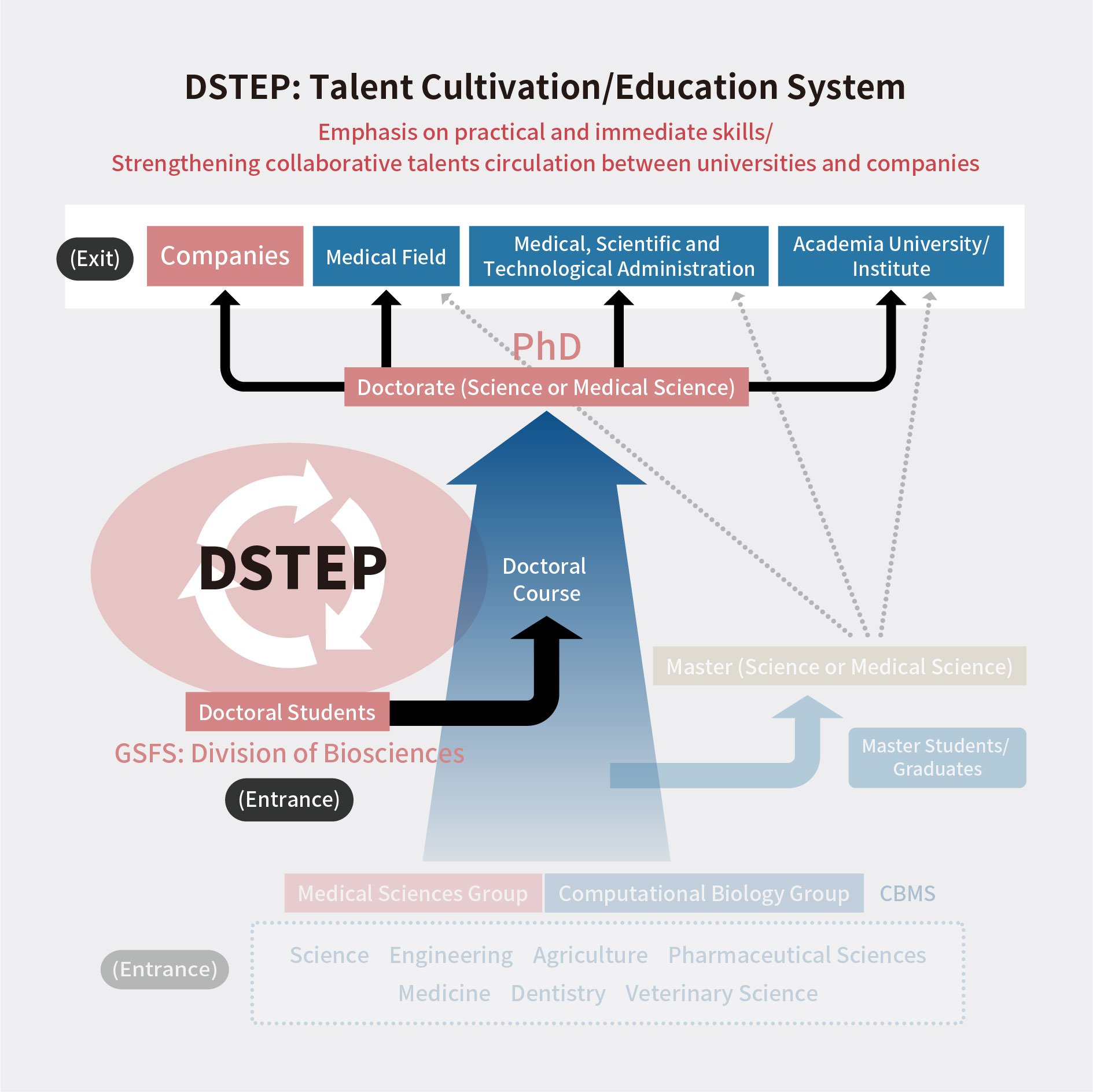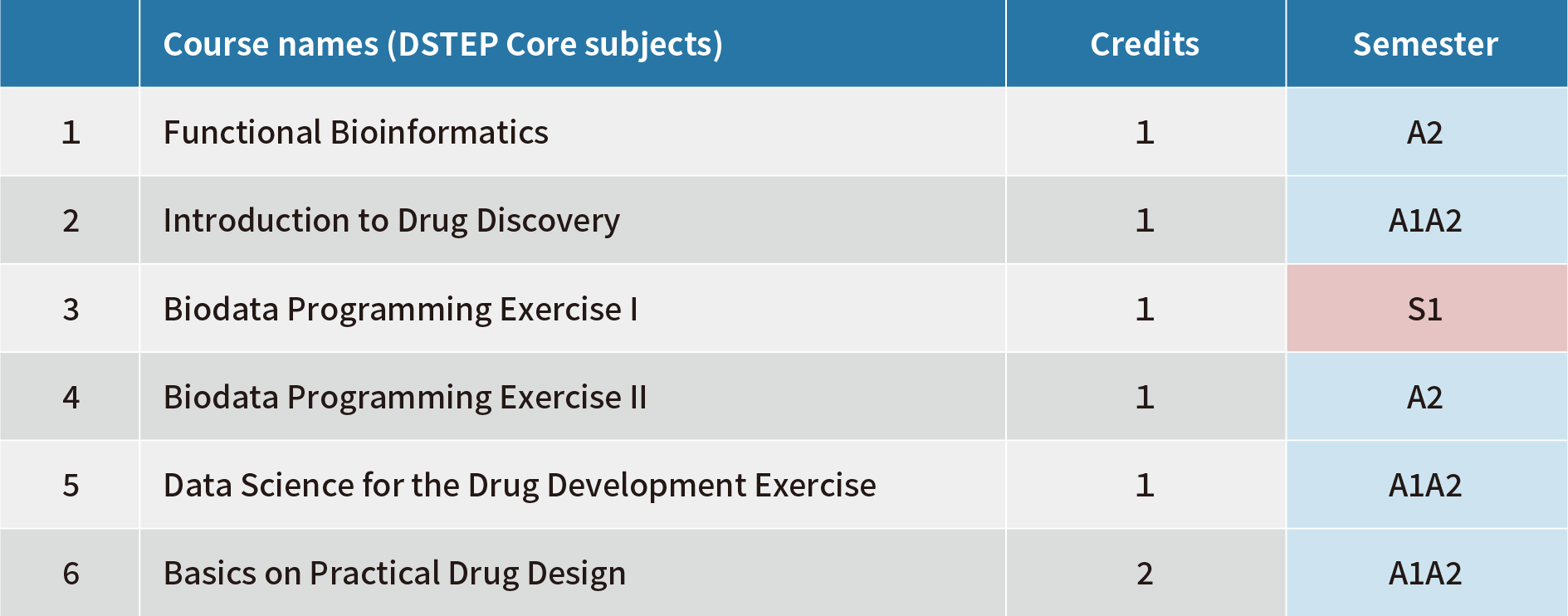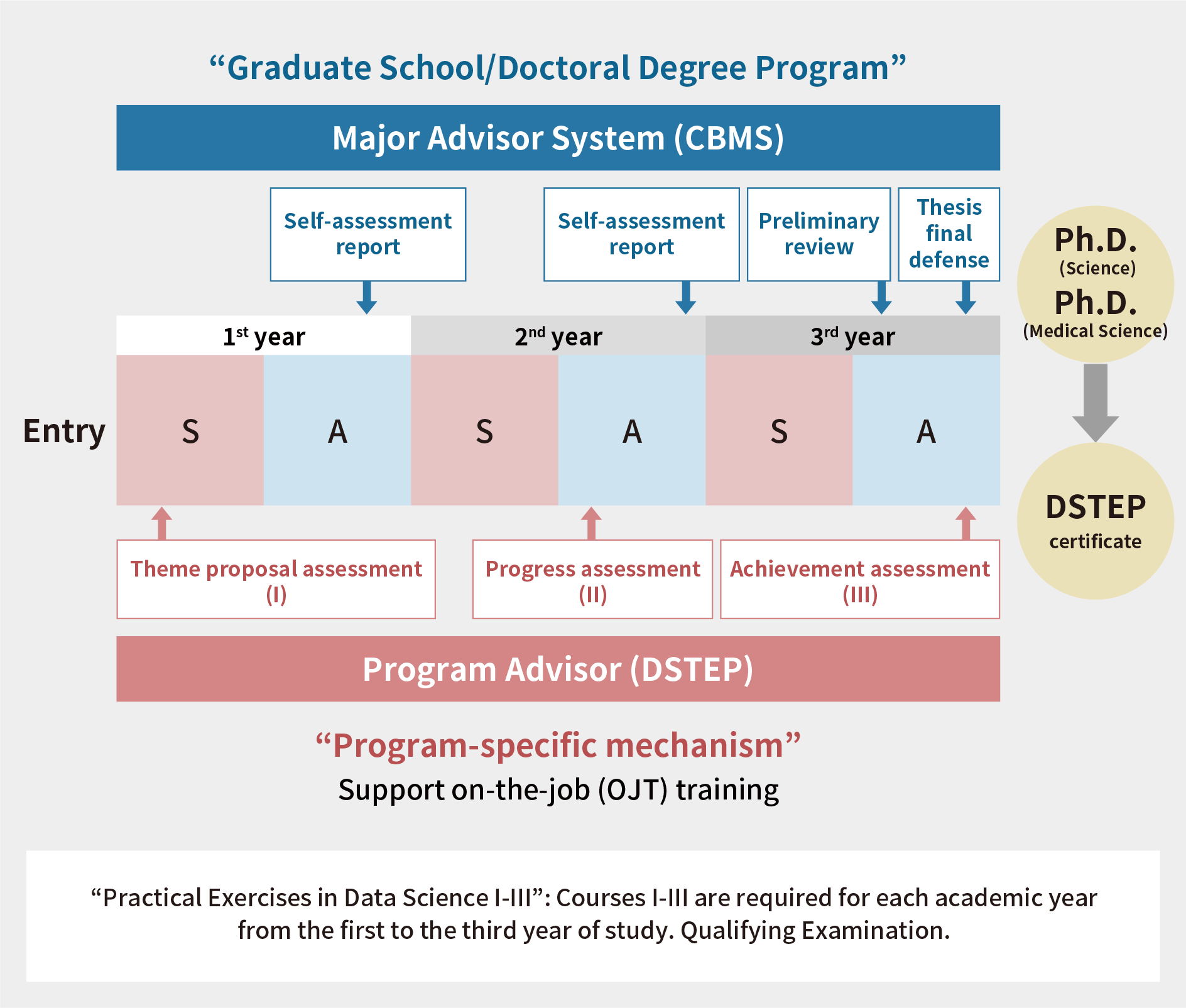DSTEP (Data Scientist Training/Education Program)
Despite the recent development of high-throughput analysis, represented by next-generation sequencers (NGS), a shortage of human resourceswho can immediately respond to the challenges that require advanced data analysis using the rapidly accumulating medical genome-related bio-big data is happening not only in academia but also in companies of related industries. Therefore, it is an urgent issue to create a system that promotes the discovery and development of advanced human resources with problem-solving abilities and the re-education of corporate researchers.
DSTEP (https://lisdac.k.u-tokyo.ac.jp/academic/dstep) program aims to develop individuals who can solve practical data science problems effectively by collaborating with a consortium of various biotechnology-related companies and a social cooperation course established as a university-operated institution.
Students are expected to experience practical on-the-job training through collaboration with external research organizations to which the department's cooperating professors belong and with related companies that participate in the consortium.

Program Completion Requirements
《Compulsory Courses》
In addition to the doctoral course's required classes, students must take Practical Exercise in Data Science I-III (Group A only) and Exercise in Biodata Programming I as common compulsory courses.
《Compulsory Elective Courses》
For DSTEP-B (Those with Biological Science Background):
Students are required to take 4 credits from DSTEP elective courses (B) as specified in the Handbook of the Graduate School. However, with prior notification to the Steering Committee, students may substitute those courses with other information science-related courses from the University.
DSTEP-I (Those with Information Science Background):
Students are required to take Exercise for Biodata Programming II as a compulsory course and two elective courses from the basic medical and biological science subjects group specified in the Handbook of the Graduate School.
Course content and features
1. Biofunctional Information Analysis
An easy-to-understand overview of cutting-edge research using large-scale biologicallife data.
2. Introduction to Drug Discovery Data Science
Aiming to provide understanding of the principles of measurement of large scale instrumentation. Explain the basic fundamentals of next-generation sequencing analysis, including its methodology.
3. Biodata Programming Exercise I
The course examined the parts where students usually had stumbled in the past and introduced unique online programming learning materials providing large amount of necessary basic knowledge. Students will get to learn the fundamental programming concepts necessary for research in biology and medical science from scratch in a broad and shallow way, thus developing a "basic skills" that will enable them to learn advanced programming necessary for research on their own in the future.
4. Biodata Programming Exercise II
Students will learn to use the cutting-edged information analysis tools that have recently been developed and tested in the form of practical exercises using real data. This course also covers how to extract and interpret biological data, along with how to optimize analysis conditions such as parameters and conditions to be considered for each purpose.
5. Exercise in Data Science for Drug Discovery
Internships at companies, participation in young researchers' groups, and exercises to gain hands-on experience in data processing in the medical field at medical institutions will be conducted.
6. Advanced Drug Design
The goal of this course is to understand the purpose, principles, and current status of drug discovery research based on bioinformatics and chemoinformatics approaches. The basics of drug discoveries using on protein 3D structures and compound information are covered. Machine learning-based biomolecular design, utilizing the large amount of genetic information and structural biology data, will also be introduced.
7. Practical Data Science Exercise I-III
Exercise I-III are compulsory subjects for each year from the first year to the third year throughout the doctoral course, the students will be evaluated based on the adoption of the proposed project (I) and for its progress (II, III) through written and oral examinations functioned as Qualifying Examination (QE).
Accredited Auditors System
Core subjects [1-6] can be taken off-campus through the Graduate School of Frontier Sciences' Course Registration System.

Program Advisor System
The thesis research guidance for students enrolled in the program is provided by a combination of direct guidance by academic advisors and degree support systems such as the advisor system in each department. In addition, one or more program advisors will be designated by the Program Steering Committee.

Contact
277-8561 5-1-5 Kashiwanoha, Kashiwa-shi, Chiba
Computational Biology Laboratory, Kashiwa Campus, The University of Tokyo
Phone: 080-3565-9297
E-mail: dstep edu.k.u-tokyo.ac.jp (*Please note that @ is displayed as an image to prevent SPAM.)
edu.k.u-tokyo.ac.jp (*Please note that @ is displayed as an image to prevent SPAM.)
*The contents of this page were developed based on a machine translation.
